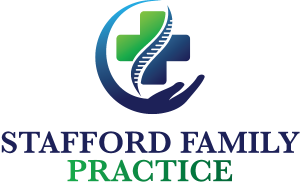Migraine is a neurological condition that affects millions of people worldwide, causing debilitating headaches and other symptoms. Recognizing and treating migraines early can significantly reduce their impact on daily life. At Stafford Primary Care, we provide education on migraine management and offer guidance on effective treatment options.
Table of Contents:
- Understanding Migraines
- Common Symptoms of Migraines
- Migraine Relief Medications
- Over-the-Counter vs. Prescription Medications
- Preventive Treatments for Migraines
- When to Seek Medical Help
- Final Thoughts
Understanding Migraines
Migraines are more than just headaches; they are often accompanied by nausea, vomiting, and sensitivity to light or sound. Migraines can last for hours or even days, and their severity can vary from mild to debilitating. While the exact cause of migraines is unknown, genetics, environmental factors, and triggers like stress, certain foods, and hormonal changes are believed to play a role.
Common Symptoms of Migraines
The typical symptoms of migraines include:
- Severe throbbing or pulsing headache, often on one side of the head
- Nausea and vomiting
- Sensitivity to light (photophobia) and sound (phonophobia)
- Visual disturbances (such as seeing flashes of light or blind spots)
- Aura (neurological symptoms such as tingling or numbness in the face or extremities)
Migraine Relief Medications
There are several medication options available for migraine relief, including over-the-counter and prescription treatments.
Over-the-Counter Medications (OTC):
- Pain relievers: Medications like ibuprofen (Advil) or acetaminophen (Tylenol) are often effective for mild to moderate migraines. Be cautious not to overuse them, as frequent use can lead to medication overuse headaches.
- Aspirin: Often recommended for its anti-inflammatory properties, aspirin can help alleviate migraine pain.
- Combination medications: Some OTC migraine medications contain a combination of caffeine, acetaminophen, and aspirin to relieve migraine symptoms.
Prescription Medications:
- Triptans: Drugs like sumatriptan (Imitrex) or rizatriptan (Maxalt) are commonly prescribed to treat migraines. They work by constricting blood vessels and blocking pain pathways in the brain.
- Ergotamine derivatives: These medications, such as ergotamine (Ergomar), are used for more severe migraines and work by narrowing blood vessels to reduce pain.
- Anti-nausea medications: Medications like metoclopramide (Reglan) can be prescribed to control nausea and vomiting associated with migraines.
Over-the-Counter vs. Prescription Medications
While OTC medications are effective for mild migraines, prescription medications are typically recommended for more severe or frequent migraines. Triptans and ergotamine derivatives are particularly useful for individuals who experience debilitating symptoms that don’t respond well to OTC options.
Preventive Treatments for Migraines
For individuals who experience frequent migraines, preventive treatments may be necessary. These can include:
- Beta-blockers (such as propranolol): Used to prevent migraines by regulating blood flow.
- Antidepressants (such as amitriptyline): Can help reduce the frequency of migraines.
- Anti-seizure medications (such as topiramate): Help prevent migraine attacks.
- Botox injections: In some cases, Botox can be used to reduce the frequency and severity of chronic migraines.
When to Seek Medical Help
If you experience any of the following, seek medical help immediately:
- Migraines that occur more than 2-3 times a month
- A sudden, severe headache that is different from your usual migraines
- Neurological symptoms such as confusion, difficulty speaking, or numbness
- New, severe headache pain after a head injury or trauma
Final Thoughts
Migraine relief is possible with the right medications and preventive strategies. Whether you are seeking immediate relief from a migraine attack or looking for long-term solutions to reduce the frequency of migraines, there are options available. Early recognition of migraine symptoms and timely treatment can significantly improve your quality of life.
At Stafford Primary Care, we are dedicated to helping individuals manage their migraines effectively. If you’re struggling with migraines, reach out to us for personalized care and treatment.
Disclaimer: The information provided in this blog is for educational purposes only and is not intended as medical advice. Always consult with a qualified healthcare professional for accurate diagnosis and treatment of any symptoms or medical concerns. In case of an emergency, please call 911.


















